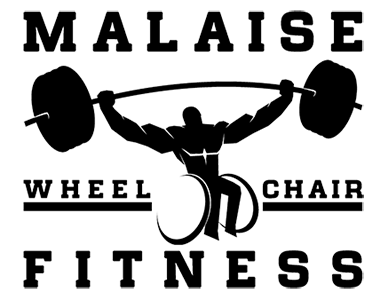The amount of calories required per day for a person in a wheelchair, who has limited or no movement of their legs, is a subject I see nowhere on the internet. This is a problem as just blindly following a recommendation or guideline based on able-bodied individuals is truly an apples to oranges situation. If we look at the most basic calculations for able-bodied individuals the simplest method is the following:
Fat loss = 12 - 13 calories per lb. of bodyweight
Maintenance (TDEE) = 15 - 16 calories per lb. of bodyweight
Weight gain: = 18 - 19 calories per lb. of bodyweight
So for a 150lb pound person they would take in 1800 for fat loss, 2250 for maintenance and 2700 calories in per day for weight gain. That sounds reasonable for a person who gets a normal level of daily activity with some gym time. However, I will tell you right now if you follow this table, and you are in a wheelchair with limited use of your legs, you will pile on pounds over time if you follow this table. Every chart I have seen will do some calculation added in based on activity and once upon a time I based my caloric intake on this chart factoring in my 4-5 times per week of strenuous activity. I found out after a couple months that just as the mortgage crisis found out, the formula is BROKEN!!!
I don't have to get too scientific here to make the claim that the legs are the main burn of calories, even in sedentary folks who do the minimal amount of walking required to get around. It's leg day that destroys people in the gym, it's the day even the hardest core of gym-goers fears. People who just walk around the office burn more calories in that little of activity than they realize and these types of calculations are based on that. So what do we wheelers do?
We do what we always do, adjust. The ratios from above were 12 for fat loss, 15 for maintenance and 18 for weight gain. For wheelers I would start with bringing that down to 10 for fat loss, 12.5 for maint and 15 for muscle gain. For a 150lb person this gives you:
- 1500 calories per day for fat loss.
- 1875 calories per day for maintenance.
- 2250 calories per day for fat/muscle gain.
This is by no means black and white, but this is a starting point. In a comparison of an able-bodied person to a wheeler it is around 300 calories less per goal. Depending on your goal I would start with these targets and +- 100 calories on either side of the target.
RANT: I F-ing hate the term able-bodied in comparison to us wheelers. Put your typical lazy-ass male my age in a bench press competition, followed up with a pull up competition against me and see who is "able-bodied". But people know what I mean and it shortens the paragraph versus saying "a person who can walk". I digress.
On days you do NOT do a hard gym session or a lot of cardio I would recommend dipping closer to a fat loss target of 10 calories per bodyweight. We just do not burn a lot of calories wheeling around unless we are going up hills, and if that is the case I would classify that as cardio. Our wheelchairs are all lightweight, titanium or aluminum. Built to be as efficient as any high priced bicycle. Plus over time our wheel stroke becomes extremely efficient as well. Combine an efficient wheelchair with an efficient stroke and you burn almost nothing on basic wheeling and regular daily activities. So start with these targets in mind.
- 10 fat loss
- 12.5 maintenance
- 15 muscle gain
If these are A LOT less calories then you normally consume, make a smaller adjustment. On days you do perform a strenuous weight training session or cardio, bump the calories up above maintenance levels. Drop back down under maintenance on non-training days. Base it on how you feel and monitor your weight/fat loss weekly and monthly. And finally, DO NOT blindly follow dietary recommendations geared towards "able-bodied" folks as you will most certainly gain weight over time.
If you missed the article on the basic nutrition guidelines, check it out here.
Reference: http://healthrecipes.com/calories.htm

